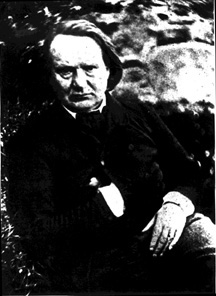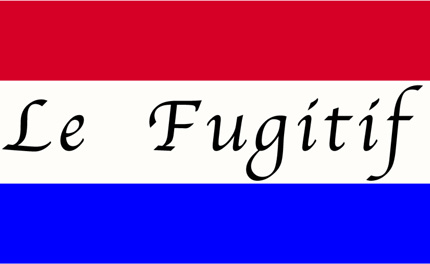Lieutenant Gerard has his counterpart in the figure of Inspector Javert, who relentlessly pursues Valjean after Valjean breaks his parole. Javert tracks him down again and again over many years, but each time he is foiled in his attempts to capture the wily fugitive, who seems to be protected by the Hand of Fate.
While running from the law, Valjean sometimes gets tangled up with real criminals whose motives are much less honorable than his own. In Les Misérables, a recurring figure of this sort is the crooked innkeeper Thénardier, who, if he had lived in the 1960s, would probably have looked a lot like Warren Oates. Thénardier and his cohorts at various times try to exploit the French fugitive to get rich (like the crooked guest stars in episodes such as THE GOOD GUYS AND THE BAD GUYS and LAST SECOND OF A BIG DREAM), or set him up as a patsy to avoid capture for their own crimes. On one occasion, Valjean is held hostage by some criminals, but he outwits them at their own game and escapes moments before the police swoop down on them. Ironically, the French police regret most that Valjean escapes, because they think him the worst criminal of the lot. These so-ironic sentiments are echoed by the LAPD officer talking to Brenda Vaccaro at the end of SEE HOLLYWOOD AND DIE.

If he is caught, Valjean will be sent back to the chain gang for life. In spite of this, he frequently risks capture to save innocent people who he encounters along his path, much like Richard Kimble a century later. For example, when an innocent man is mistaken for Valjean and is doomed to be sent to prison in Valjean's place, Valjean steps forward to prevent a miscarriage of justice. Amazingly, though, he also manages to avoid being arrested himself by making a harrowing escape in the nick of time, aided by a good woman who admires him. He saves a child from evil foster parents, brings prosperity to an entire village by dint of his ingenuity and hard work, rescues an old man from being crushed, even though doing so exposes his identity to Javert, and generally gives away a lot of money and is kind to animals.
No matter how many good deeds Valjean does, however, for Javert it cannot outweigh the fact that Valjean is a criminal in the eyes of the law. Even when Valjean saves a whole busload of children on their way to the Paris lycée one day, Javert is unmoved — not unlike the attitude of Lieutenant Gerard after Kimble performs a similar feat in NIGHTMARE AT NORTHOAK, n'est-ce pas?
Finally, though, Javert sees the light, after Valjean, in a tremendously ironic moment, saves the policeman's life, though in doing so he gives aid to his worst enemy. Javert needs saving because he has fallen in with a band of Parisian hillbillies, or billies des hilles, who do not respect law and order, much like the killer hillbillies in CORNER OF HELL and ILL WIND. He repents for having put Valjean through such a hellish chase, aids him in doing a good deed, and finally throws himself into the Seine.
Lieutenant Gerard, by contrast, still doesn't get it even after Kimble has saved him a bunch of times. In the end, he does team up with Kimble for a while, like Javert, but then, rather than committing suicide, Gerard merely offers his erstwhile quarry a wimpy let's-be-friends handshake. This just goes to show how much Americans still need to learn from their European role models when it comes to matters of panache.

 Back to HOMEPAGE OF THE HUNTED <http://unchance.net/Fugitive>
Back to HOMEPAGE OF THE HUNTED <http://unchance.net/Fugitive>